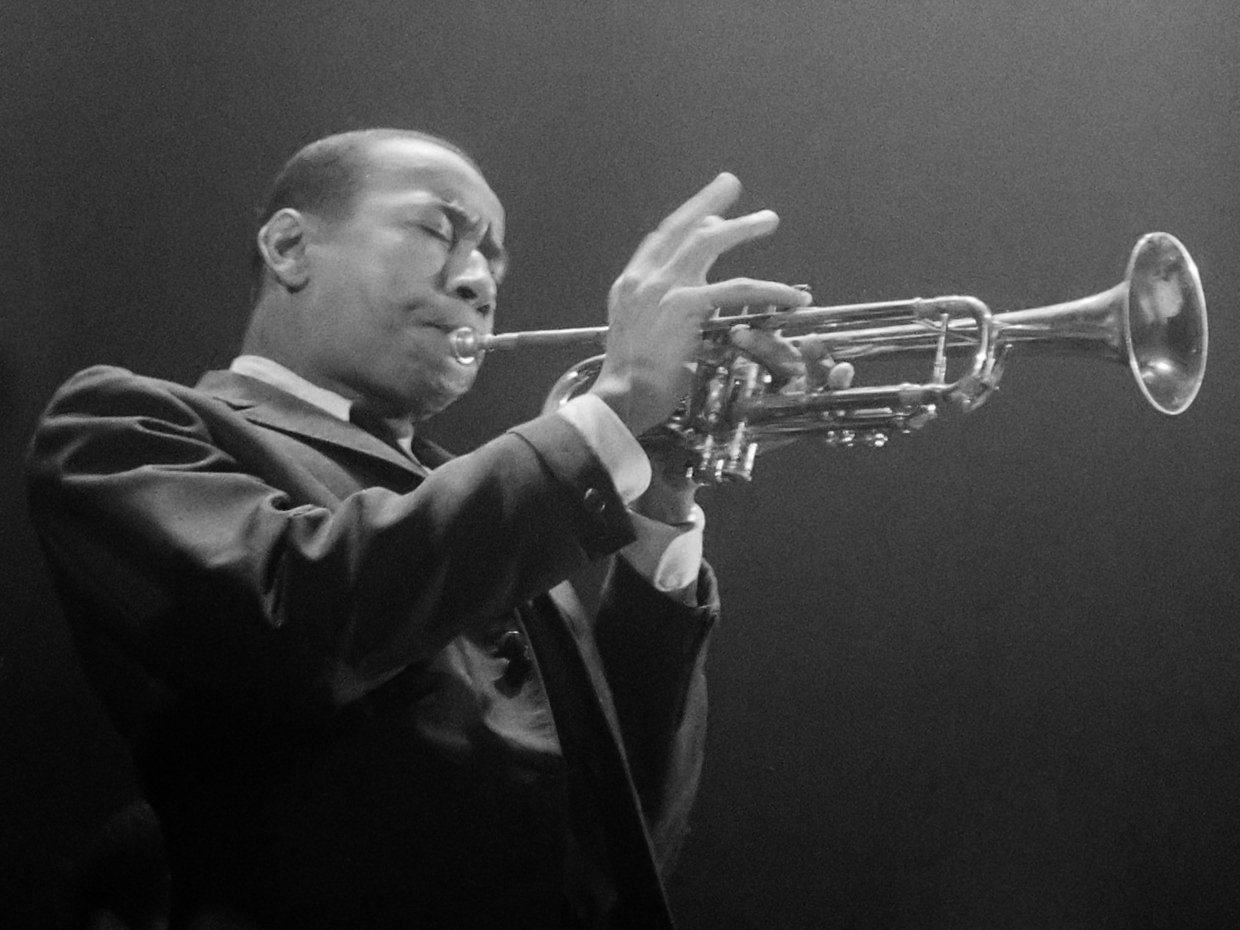Artist: Lee Morgan
Edward Lee Morgan (1938–1972) was an American jazz trumpeter and composer.
One of the key hard bop musicians of the 1960s, Morgan came to prominence in his late teens, recording on John Coltranes’ Blue Train (1957) and with the band of drummer Art Blakey before launching a solo career.
Morgan recorded prolifically from 1956 until a day before his death in February 1972. He joined Dizzy Gillespies's Big Band at 18 and remained as a member for a year and a half until economic circumstances forced Gillespie to disband the unit in 1958.
Morgan began recording for Blue Note in 1956, eventually recording 25 albums as a leader for the label. He was a featured sideman on several early Hank Mobley records, and intermittently thereafter.
Joining Art Blakey’s Jazz Messengers in 1958, Morgan further developed his talent as a soloist and composer. He toured with Blakey for a few years, and was featured on numerous albums by the Messengers, including Moanin’, which is one of the band's best-known recordings.
His song “The Sidewinder", on the album of the same name, became a surprise crossover hit on the pop and R&B charts in 1964, while Morgan's subsequent recordings found him touching on other styles of music such as post-bop and avant-gard jazz as his artistry matured. Due to the crossover success of "The Sidewinder" in a rapidly changing pop music market, Blue Note encouraged its other artists to emulate the tune's "boogaloo" beat. Morgan himself repeated the formula several times with compositions such as "Cornbread" and "Yes I Can, No You Can't" on The Gigolo.
Further information about Lee Morgan can be found at AllMusic.com.
This content was excerpted from the Wikipedia article, https://en.wikipedia.org/wiki/Lee_Morgan, which is released under the Creative Commons Attribution-Share-Alike License 3.0 (https://creativecommons.org/licenses/by-sa/3.0/).
Photo credit: Herbert Behrens / Anefo, CC BY-SA 3.0 NL https://creativecommons.org/licenses/by-sa/3.
Lee Morgan - Cornbread
Lee Morgan: Videos
Lee Morgan - The Sidewinder
Lee Morgan - Recado Bossa Nova

